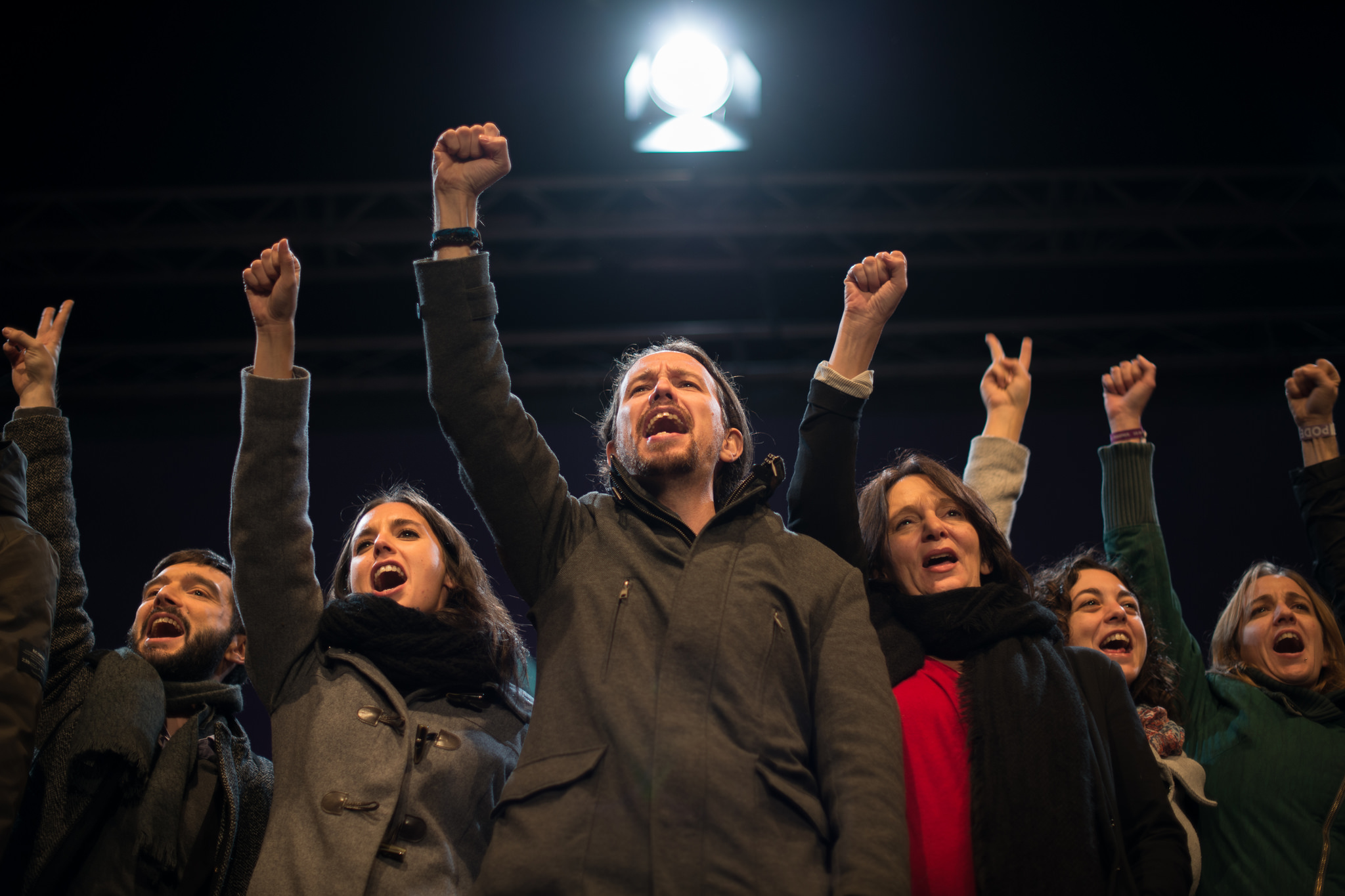-
Tips for becoming a good boxer - November 6, 2020
-
7 expert tips for making your hens night a memorable one - November 6, 2020
-
5 reasons to host your Christmas party on a cruise boat - November 6, 2020
-
What to do when you’re charged with a crime - November 6, 2020
-
Should you get one or multiple dogs? Here’s all you need to know - November 3, 2020
-
A Guide: How to Build Your Very Own Magic Mirror - February 14, 2019
-
Our Top Inspirational Baseball Stars - November 24, 2018
-
Five Tech Tools That Will Help You Turn Your Blog into a Business - November 24, 2018
-
How to Indulge on Vacation without Expanding Your Waist - November 9, 2018
-
5 Strategies for Businesses to Appeal to Today’s Increasingly Mobile-Crazed Customers - November 9, 2018
Spain: Left Refuses Right-Wing Coalition, New Elections Possible
Anti-austerity Podemos and fellow newcomer Ciudadanos (“Citizens”), a business-friendly party, entered the mainstream for the first time in the closely-contested election, ending domination by the PP and Socialists stretching back to soon after dictator Francisco Franco’s death in 1975.
Advertisement
Ciudadanos leader Albert Rivera said the best solution would be for Rajoy to seek to form a minority government and his party would abstain in a vote to allow that to happen.
Mr Rajoy, seeking a second term, said he would “try to form a stable government” but has no immediately obvious partner to do that.
And with the upstart Ciudadanos also ruling out backing Rajoy, the austere 60-year-old premier appears increasingly beleaguered and alienated.
But the political instability provoked a drop Monday in Madrid’s stock market, with shares on the IBEX 35 falling 2.8 percent in early trading before a slight recovery, the BBC reported.
The two left-wing parties won 159 seats between them in the 350-seat parliament, and with Catalan nationalists likely to join them in opposing the PP, it appears to make it virtually impossible for the PP, which won 123 seats, to construct a majority.
“Until now, Spain has had a two party political system, similar to that of the U.S. But these elections broke that with four main parties vying for and winning power”.
“Podemos would not permit a PP government, either actively or passively”, Podemos leader Pablo Iglesias told reporters, meaning that his party will neither vote for PP rule nor abstain in a parliamentary vote on a new government.
“Spain needs a government that has the support of parliament”, he said.
Sky-high unemployment, inequality, corruption and an ever-rising separatist drive in the northeastern region of Catalonia were just some of the issues at stake in a country deeply scarred by the financial crisis and fed up with what many considered a staid political scene.
But the Socialists have reiterated their unwillingness to ease the PP’s return to power as Socialist spokesman César Luena said his party will “vote against the investiture of Mariano Rajoy”.
Once the new parliament and senate are operational, from January 13 onwards, it will be up to the King Felipe VI to put forward a candidate to be sworn in as prime minister, once alliance talks have taken place.
Incumbent Prime Minister Mariano Rajoy said he will “try to form a stable government'” but faces an uphill climb to gain outside support.
If there is still a deadlock within two months of the first vote, the king must call new elections.
Advertisement
Created less than two years ago, the anti-establishment party quickly went on to win five seats in European elections, and has now become the parliament’s third political force.





























